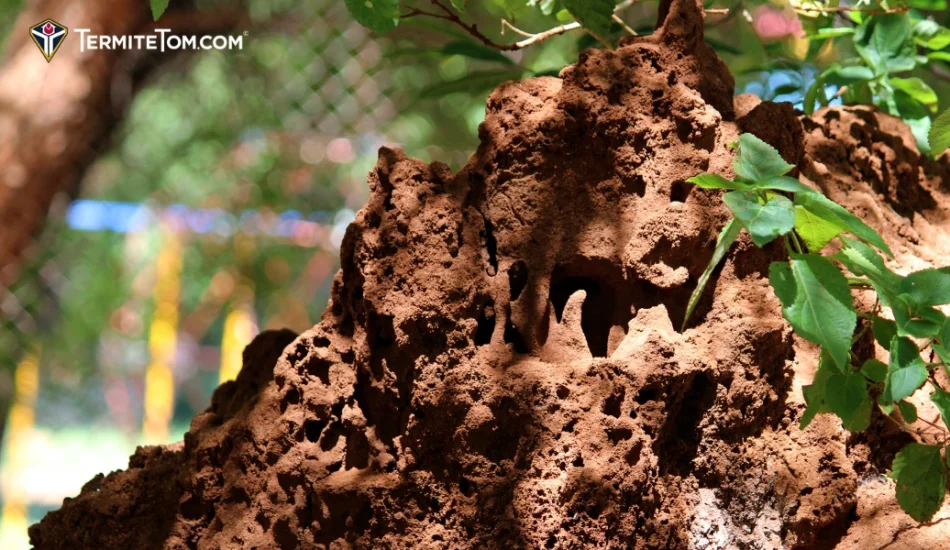A: The duration of swarming is dependent on various factors, including the weather, the species, and the time of day. If alates do not find a mate and shelter, they typically die off quickly. Although the appearance may be brief, it is generally indicative of a much more significant problem inside or under your home or in your yard.
Termite Swarm Season — All You Need to Know

If you’ve ever seen sudden clouds of small-winged insects that are outside or inside your home, you could be experiencing termite swarm season, which is locally common in March through early summer, with your own eyes.
Although many may think that swarming termites are flying ants, this could be a red flag that a termite colony could be nearby, although it doesn’t always mean that your home is infested. If you find damage and your pest inspection company failed to prevent the damage, contact Termite Tom at Campbell Law, P.C., today.
According to the US Department of Agriculture, damage from termites causes an estimated amount of $1 billion to $7 billion each year. Despite these significant threats, only a small part of the over 105 million single-family homes in the country have received adequate treatment to prevent termite invasion. By understanding what termite swarm season is, when it happens, and how to pay attention, homeowners and renters alike can fight to protect their homes.
What Is Termite Swarm Season?
Termite swarm season is the period of the year when reproductive termites — otherwise known as alates — leave their existing colonies in order to start new ones. These termites swarm around in large numbers to find a mate and settle into a new location where they can nest. This tends to happen during warm and humid times like March through June. If you have spotted a swarm, this likely means that you are close to a mature colony.
Importantly, a swarm is not the same thing as an infestation – although it can suggest that a colony lives nearby. A crucial reproductive stage in the termite life cycle is swarming, and this phase is often the only chance that people may have to visibly verify a termite presence. After the swarm is over, the alates get rid of their wings and hide in wood, soil, and cracks to start their new colonies.
When Does Swarm Season Happen?
When swarm season happens is dependent on the species of termite and the region of the country. The subterranean termite swarming season takes place from the spring months of March through early summer, with swarms being seen commonly from morning to midday.
The drywood species, on the other hand, has a swarming season of late summer to fall, when they seek their mates in the late afternoon or evening. Formosan termites swarm in late spring, usually in the evenings.
The Southeast sees the swarm season starting earlier due to higher humidity and warmer temperatures. This means residents in Mississippi, Alabama, Georgia, and Florida should be on red alert for signs of a termite swarm.
Termite Tom & Campbell Law Pc
You’re In Good Hands
We focus on termite cases every single day. Proven Experience Matters.
Signs of a Termite Swarm
To prevent critical damage, it’s crucial to learn how to recognize swarm activity. Here are some crucial signs to look for — wood that is soft or hollow sounding to the touch, termites that are flying around light sources or indoors, peeling paint or pin holes in drywall, fallen wings near doors, on floors, or on window sills, or the sudden appearance of mud tubes in foundations or walls.
Termites can be recognized by their equal-length wings, thick waists, and straight antennae. Be careful not to confuse them with flying ants.
If you have even the smallest suspicion of termites, it is crucial to act right away. Don’t use store-bought solutions or DIY treatments to try to make fixes. If your home was supposedly treated or is under a termite bond, you should take photos and videos of the evidence, step away, and contact a termite damage attorney as soon as possible.
Key Things to Know About Swarm Season
- If you have termite swarms inside your house, you have hidden damage and a claim because your company could have prevented it and did not.
- Don’t trust the termite company, which could have prevented termites and did not when you had a swarm. They have more reason to lie than anyone else. And since they risk being exposed because of the infestation in your house, their motive to lie is even greater.
- Most termite companies’ claims handlers are conmen. Get an independent evaluation, even if what they say sounds reasonable because the con man’s job is to gain your trust and confidence.
- Termites only swarm for hours, so just because they stop swarming does not mean a remedial treatment worked. It just means the mating cycle is over. Get a free evaluation to see if the infestation is caused by deficient termite treatment that may have caused severe damage behind walls and in floor and ceiling systems.
- Up to 90% of termite damage is hidden. If you are told the problem is small but your pest control company has not opened up your walls and floors to expose 20 feet of sheathing, joists, and studs, then you are being scammed.
- Call the most successful termite damage law firm in America and have your claim evaluated for free instead of calling lawyers who are trying to copy Termite Tom’s success or collect cases to settle by advertising.
FAQs
Q: Are Swarming Termites Dangerous?
A: Swarming termites are not directly dangerous, as they do not sting or bite. They do, however, indicate that there is a nearby or active colony that could potentially cause extensive structural damages that could be worth thousands of dollars. Therefore, if you see a swarm near your house or yard, you should take their presence extremely seriously.
Find Out Whether a Termite Swarm Means You Have a Case
Termite swarm season is not just a time to be concerned about pest control; it is also an opportunity to shed light on negligence that can be held accountable under the law. If you need assistance determining whether a termite swarm is indicative that you have a case, Termite Tom at Campbell Law, P.C., can help you today. Contact us today so that we can help you get answers and hold negligent parties accountable.



